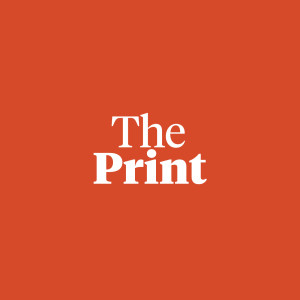

Sources & Methods
https://feeds.npr.org/g-s1-84651/podcast.xmlEpisode List

Defense Secretary Pete Hegseth is in hot water – again
Pentagon chief Pete Hegseth was already facing questions for his role in the September 2 strikes on an alleged drug boat in the Caribbean. Then on Thursday, a Pentagon report dropped that says he risked a United States bombing mission in Yemen when he shared classified plans on Signal. Host Mary Louise Kelly speaks with Pentagon correspondent Tom Bowman and national security correspondent Quil Lawrence about the controversies Hegseth keeps finding himself in. Email the show at sourcesandmethods@npr.orgNPR+ supporters hear every episode without sponsor messages and unlock access to our complete archive. Sign up at plus.npr.org.Learn more about sponsor message choices: podcastchoices.com/adchoicesNPR Privacy Policy

MAGA and 'The Mission' of the intelligence community
Ideology is the enemy of intelligence, says Pulitzer Prize winning journalist Tim Weiner. His recent book, a history of the modern CIA, is called The Mission: The CIA in the 21st Century. A version of this interview previously aired on NPR's All Things Considered. We're off the rest of the week and back with a regular Thursday episode on December 4. Email the show at sourcesandmethods@npr.orgNPR+ supporters hear every episode without sponsor messages and unlock access to our complete archive. Sign up at plus.npr.org.Learn more about sponsor message choices: podcastchoices.com/adchoicesNPR Privacy Policy

Trump and MBS: Who's wooing whom?
Saudi Arabia's Crown Prince Mohammed bin Salman has positioned himself as a global power broker with money to invest. President Trump considers him an ally. How have the U.S.-Saudi ties deepened under Trump?Guest host Sacha Pfeiffer speaks with national security correspondent Greg Myre and international correspondent Aya Batrawy about Prince Mohammed's return to Washington, and the U.S. plan for an international security team to enter, demilitarize and govern Gaza.Email the show at sourcesandmethods@npr.orgNPR+ supporters hear every episode without sponsor messages and unlock access to our complete archive. Sign up at plus.npr.org.Learn more about sponsor message choices: podcastchoices.com/adchoicesNPR Privacy Policy

Peace through strength? America first? Is there a Trump doctrine?
President Trump has an ad-hoc approach to foreign policy. How well is it working?Guest host Sacha Pfeiffer speaks with national security correspondent Greg Myre and Russia correspondent Charles Maynes about Trump's second term approach to foreign policy, and how that's playing out across the globe including Russia. And is Trump and Russian President Vladimir Putin's nuclear talk just bluster, or the beginning of a new arms race?An earlier version of this episode contained a confusing reference to the Comprehensive Nuclear Test-Ban Treaty. That agreement -- unlike the New START Treaty -- will not expire in February. We have edited the audio for clarity. Email the show at sourcesandmethods@npr.orgNPR+ supporters hear every episode without sponsor messages and unlock access to our complete archive. Sign up at plus.npr.org.Learn more about sponsor message choices: podcastchoices.com/adchoicesNPR Privacy Policy

Insiders reveal 'wrecking ball' at Trump's DOJ: how two reporters got the scoop
Pulitzer Prize-winning journalists Carol Leonnig and Aaron C. Davis sit down with Mary Louise Kelly to talk about their book Injustice: How Politics and Fear Vanquished America’s Justice Department. They reveal why career prosecutors at Department of Justice were slow to explore the Trump administration's efforts to subvert the 2020 election -- and how they got insiders to talk.Email the show at sourcesandmethods@npr.orgNPR+ supporters hear every episode without sponsor messages and unlock access to our complete archive. Sign up at plus.npr.org.Learn more about sponsor message choices: podcastchoices.com/adchoicesNPR Privacy Policy
You may also like
Create Your Podcast In Minutes
- Full-featured podcast site
- Unlimited storage and bandwidth
- Comprehensive podcast stats
- Distribute to Apple Podcasts, Spotify, and more
- Make money with your podcast



